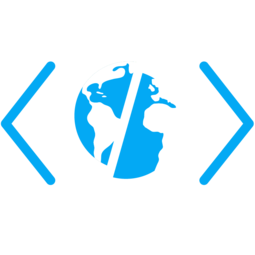Nowadays, businesses are shifting towards mobile apps, for their business. Since mobile apps are helping customers with better accessibility to any business. It can also allow customers to interact with their favorite brand within a personal space. This, in turn, can increase the brand value of the business. Thereby, customers can easily access business from anywhere and at any point of time.
As a matter of fact, with the help of mobile applications, a business can get better exposure, improved customer base, and increased brand reputation.
What Is Mobile App Development?
Mobile app development is a process that allows developing applications for mobiles. These apps are usually in the form of web applications and come with client-side or server-side processing. It offers users with same services that one can access from their PCs. Apps can come with features like push notification and geo-location; thereby, help a business to increase its brand awareness.
In short, a mobile application, is often touted as an app, is a type of application software, which has been designed to run on a smartphone or tablet.
Now that you have understood what a mobile app is, you need to know that the cost of developing mobile apps can be very expensive. However, the scenario has changed as of now.
Cost Can Be a Hindrance
The cost of mobile app development used to be expensive previously. So, it acted as an obstacle for many businesses, who wanted to develop a mobile application. However, one can develop mobile apps at an affordable rate by using the right development tool.
If you are wondering which mobile app development tool to use for developing a world-class app, you don’t need to scratch your head. All you need is to follow this guide. In no-time, you will know about the development tools for mobile apps which won’t burn a hole in your pocket.
React Native
This is one of the most popular app development frameworks. It uses JavaScript in order to develop native apps. Being a popular framework, it can control complicated UI as well as component-based UI. In turn, this can help developers to make use of the same UI component for iOS and Android apps.
Being an emerging open-source framework from the house of Facebook, it allows quick prototyping and high initial velocity. It even comes with features like hot reloading that can ease the running of new code and retain the application state of the app at the same time.
Xamarin
This mobile app development software is based on C# and runs on .NET infrastructure. It can be an excellent choice for native app development.
Since it reuses data access extensively across various platforms, it can be very helpful for operations. Operations that involve offline mode and image recognition benefit greatly. This tool doesn’t work with a mono framework and can ease communication with mobile devices’ API. Thereby, helping developers to create robust and scalable apps, thanks to Xamarin’s top-end QA and also it’s testing features.
Developers get to choose from a host of free and paid components. Xamarin offers a wide range of components, starting from UI controls to third-party services.
Ionic
It is an HTML5 mobile app development framework. This framework is based on the Sass CSS language. Being a cross-platform framework, it can easily run on multiple OS. With the help of the command-line interface, features such as live reload, logging, and emulators are easily available.
Using this framework is pretty easy. It can be easily merged with AngularJS for building advanced apps. Ionic offers a vast library of JS CSS, CSS, and HTML components optimized for mobiles, gestures and tools. It is known to work well with predefined components.
Flutter
It is a modern development kit from Google, which can ease the mobile app development process for Android, Google Fuchsia, and even iOS. From the time of inception, this framework got very popular. This framework comes with features like hot reload.
With hot reloading, developers can easily preview the changes that are made to the code within the app. To see the changes, a lot of time doesn’t get wasted. Hence, developers get the chance to experiment directly and solve the glitches.
Flutter makes use of Dart as its programming language. Being similar to React Native it improves the app start-up time. Investing in this tool can be a great choice as the overall performance of an app developed with this framework is simply great. It is supported by a growing ecosystem of libraries, packages, advanced tools, and plugins like Figma to Flutter.
Android Studio
Basically, this is an IDE created on IntelliJ IDEA. The software is great for Android app development. Additionally, it also speeds up the development process by increasing productivity. This is because it offers a wide number of options for development purposes.
It even comes up with added features, like Gradle-based build support, Lint tools, Android-specific refactoring, Proguard, etc.
Xcode
This tool works a lot like Apple's IDE. It can be used for a wide range of Apple products starting from the iPhone to the iPad and even the Mac. It uses single window interface that can help developers to manage development, right from the start till the end.
Moreover, it offers support to several programming languages, like Python, Java, C, C++, and Ruby among others. The testing environment is flawless as well. As it offers the option of testing, it can help developers to eliminate bugs and improve the robustness of the app. It can also diminish its market time.
Mobile apps come with a lot of benefits. As discussed above, mobile applications developed with any tool can help businesses with effective communication with their customers. With a mobile application, businesses can easily attract new customers and even retain existing customers.









